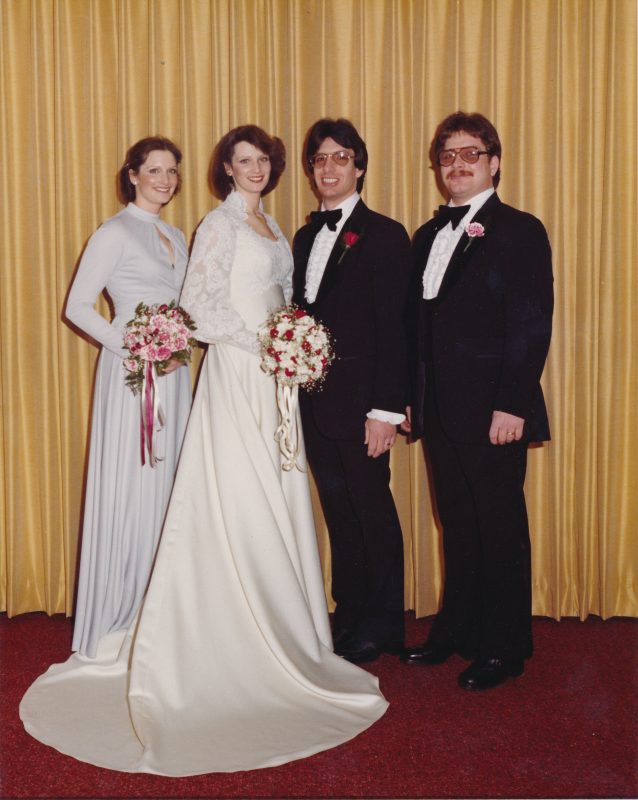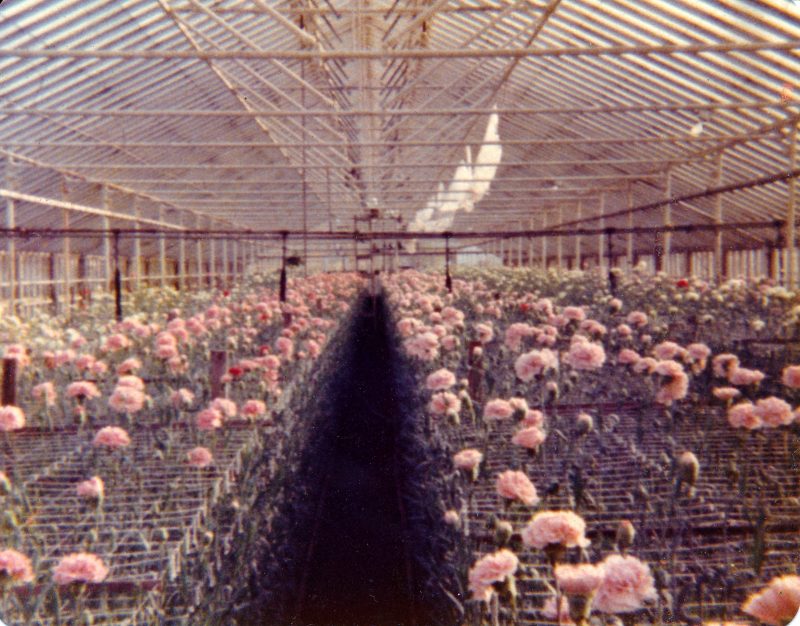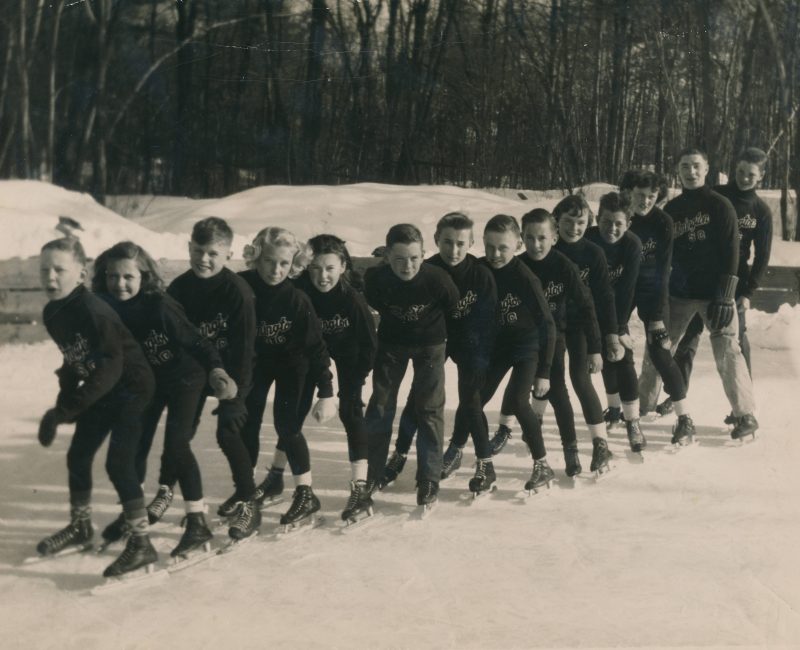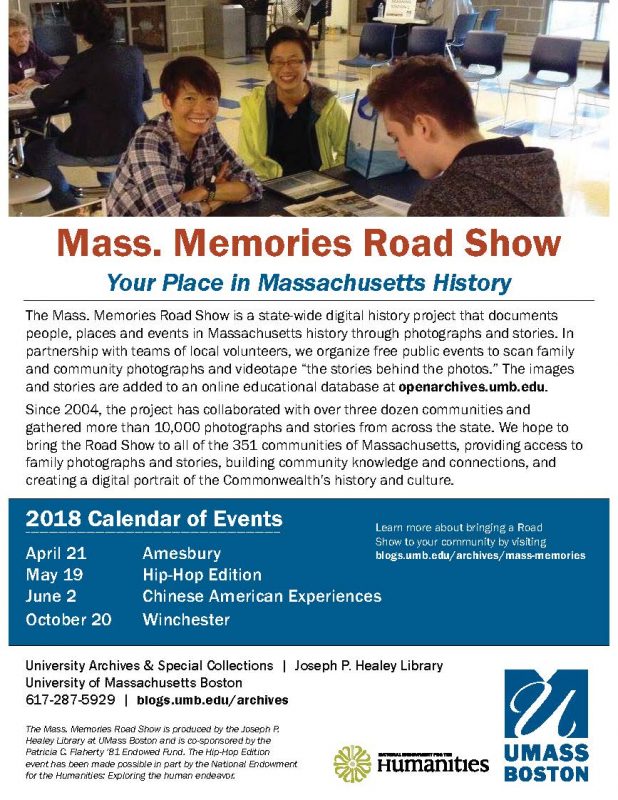Time: Saturday, April 21, 2018 | 10:00 am – 3:00 pm
Location: Amesbury High School | 5 Highland Street | Amesbury, Mass. | Click here for directions.
Do you have a connection to Amesbury, Massachusetts? Do you live or work in Amesbury? Are your roots in Amesbury? Share your memories and take your place in Massachusetts history at this free, public event.
Please bring 2-3 photographs in their original format (digital or print photographs) and your stories to be recorded. We will scan unframed pictures and copy digital images and return the pictures back to you. All images will be added to the online collection at openarchives.umb.edu.
Local support for the Amesbury Mass. Memories Road Show is provided by the Amesbury Carriage Museum and the Amesbury Council on Aging.
For more information about the Amesbury Mass. Memories Road Show, contact Doreen Brothers at (978) 388-8138 x 546 or brothersd@amesburyma.gov, or John Mayer at (978) 834-5058 or jmayer@amesburycarriagemuseum.com. Read more about the event here.
The Mass. Memories Road Show is a statewide digital history project that documents people, places, and events in Massachusetts history through family photographs and stories. It is produced by the Joseph P. Healey Library at the University of Massachusetts Boston and is co-sponsored by the Patricia C. Flaherty ’81 Endowed Fund.
Download the flyer for the Amesbury Mass. Memories Road Show and remember to share it with your friends and family members!
Questions? Email carolyn.goldstein@umb.edu.
The Mass. Memories Road Show is a statewide digital history project that documents people, places and events in Massachusetts history through family photographs and stories. In partnership with teams of local volunteers, we organize public events to scan family and community photographs and videotape “the stories behind the photos.” The images and videos are indexed and incorporated into an online educational database. Since its launch, the project has gathered more than 9,000 photographs and stories from across the state. It is supported in part by the Patricia C. Flaherty ’81 Endowed Fund at UMass Boston.
University Archives & Special Collections in the Joseph P. Healey Library at UMass Boston was established in 1981 as a repository to collect archival material in subject areas of interest to the university, as well as the records of the university itself. The mission and history of UMass Boston guide the collection policies of University Archives & Special Collections, with the university’s urban mission and strong support of community service reflected in the records of and related to urban planning, social welfare, social action, alternative movements, community organizations, war and social consequence, and local history related to neighboring communities. To learn more, visit blogs.umb.edu/archives.








